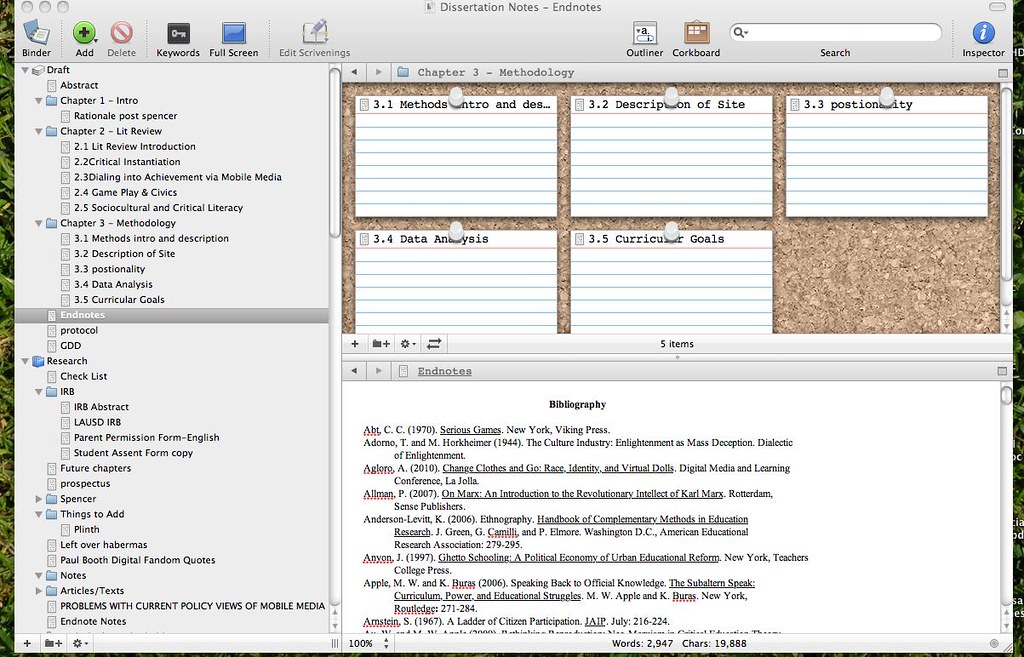
Just over a week ago, I defended my dissertation proposal for my Ph.D. Though I intend to more fully describe the proposal, my plans for implementation, and how you can be involved, I wanted to here describe the writing tool that I relied on. To be as blunt as possible, Scrivener is perhaps the best forty dollars I’ve spent in my professional career.
Through breaking down a larger document into smaller files, folders, and subfolders, Scrivener fits the ad hoc nature of my writing style. Frequently, I would find myself jumping from amending the proposal’s rationale to tweaking a few lines in the lit review to jotting out a section of the appendix. I started writing my proposal importing a handful of useful articles and a few paragraphs and papers I’d previously written that helped guide my writing. Scrivener allowed me to morph these scraps as needed throughout the months I spent writing the 80+ page proposal I ended up with. For instance, I started the bulky literature review chapter with notes on the areas I intended to review. These were in a single text section. However, as these areas grew, I broke them into the five sections you can see in the image above. These too, in turn, were expanded to allow me to more closely focus on various nuances within the areas I was reviewing and collapsed later for fluidity.
Scrivener allowed me to expand and collapse text and folder as needed, move sections around, and keep many of my needed PDFs, images, and notes within an eye’s view. Being able to edit with two text windows open within Scrivener meant compiling my bibliography while writing, or looking at various drafts simultaneously.
Oh yeah, and it’s really, really easy to use. Pretty much everything I do with Scrivener is covered in this single video.
I also want to note that I don’t feel like I come anywhere near to utilizing the many features that come included in Scrivener. However, it significantly frees up my time between drafts and allows me to work quickly through larger documents (I’ve used it for most papers and articles I’ve written in grad school). It would be nice to see something Scrivener-like that becomes more collaborative (I really enjoy working with Google Docs with others, and can see Scrivener working well in this context). I definitely don’t get compensated for raving about Scrivener, and I paid for it (their ease with which they allow me to put it on the multiple computers I use is also appreciated). I get questions, occasionally, about the software I use when writing. I begrudgingly stuck with Endnote because I’ve already invested in learning its interface. Scrivener is intuitive and has become an essential component to my productivity.
[Note: A significant update to Scrivener recently came out. I have not yet looked into the additional features.]
Pingback: The American Crawl : Productivity and Unhinging Ideas From Books: A Collaborative Post with Jason Sellers (Part I)